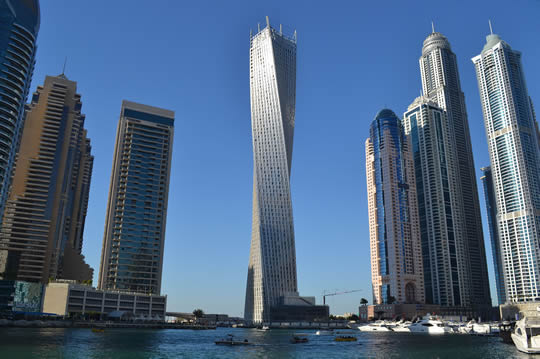Green shoots in Dubai’s real estate sector are increasingly becoming evident as residential market recorded double-digit sale growth last year while actual supply was lower than projected, reflecting that the gap of supply and demand is narrowing fast.
Data by ValuStrat revealed that a total of 24,613 residential units were confirmed to have been completed in 2019 – which includes 19,505 apartments and 5,108 villas/townhouses. This mean total completions represented only 58 per cent of the projected residential supply for 2019.
“An evident positive buyer sentiment has been observed for the past 15 months, boosting investor demand. This was likely due to attractive prices, fewer off-plan launches and delayed project completions. Annually, cash sale volumes of ready homes grew 29.7 per cent and off-plan sales jumped 68.3 per cent,” according to Haider Tuaima, head of real estate research at ValuStrat.
The emirate’s real estate sector has been seeing dismal performance, with prices and rentals falling in single digits year-on-year over the last six years. Of late, certain areas of Dubai are witnessing uptick in rentals and prices, signaling that the local property market is bottoming out and the curve will move upward in the coming years.
More than half of 2019’s new supply was concentrated in four areas – Dubailand, Jumeirah Village Circle, Dubai Marina and Mohammed Bin Rashid City.
“Developers promising to handover no less than 340 projects totalling 90,000 units next year remains to be realised, given delays in construction as evidenced during the last five years,” ValuStrat said in a note released on Tuesday.
Declan King, managing director and group head for real estate at ValuStrat, said he doesn’t see price recovery yet. “It is really interesting to see that more and more buyers are entering the residential market – perhaps an indication that many feel much reduced sales prices represent good value, and that it is now about the right time to buy. Lowered borrowing costs, improved product offerings and attractive developer payment plans may all now be creating the right conditions for improved buyer confidence in Dubai’s property market,” King said.
According to ValuStrat, capital value of Dubai residential property fell 10.4 per cent last year and 2.5 per cent in the last quarter.
All established freehold locations monitored saw capital values decline since the last quarter, ranging from 1.5 per cent to 3.5 per, cent. On an annual basis, four out of 26 locations witnessed single-digit declines, villas in the Meadows, Palm Jumeirah and Emirates Hills, as well as apartments in Dubai Sports City. Capital values dropped more than 15 per cent annually for apartments in Discovery Gardens, and Dubai Production City.
Harmony key for recovery
Abdulla bin Sulayem, CEO of property developer Seven Tides International, believes that Dubai’s property market will start to recover in 2020, driven by Expo 2020, new government initiatives, favourable payment plans from developers and growing flexibility from financial institutions.
He said the lasting legacy of Expo 2020, when measured against Dubai’s property market, will only be truly realised when international visitors return to Dubai, to invest, live and work here over the medium to long-term.
He noted that the residential market outlook for Dubai in the medium to long-term looks very positive indeed, especially if the government, the banking sector and developers work in harmony.
“The government can continue to aid the recovery of the market by introducing new and innovative regulations, initiatives and, of course infrastructure, while banks can support with competitive interest rates and easing loan requirements. And, developers for their part need to focus on delivering quality developments in prime locations with unique features which are competitively priced and offer attractive yields – finding the right balance will secure Dubai’s position as a preferred property market in 2020,” he added.
“Despite ongoing concerns about supply and demand dynamics,” he said, “it is important to understand that competition in itself is very healthy, and as a result one of the primary aims of the newly formed committee will be to enhance the competitiveness of the real estate sector as a whole – continuously encouraging developers to come up with new and innovative projects that make Dubai, and indeed the UAE, stand out in the global property market,” added Sulayem.

All rights reserved to the initial publisher for khaleejtimes.
Collected and published by Arms &McGregor International Realty editorial team.

